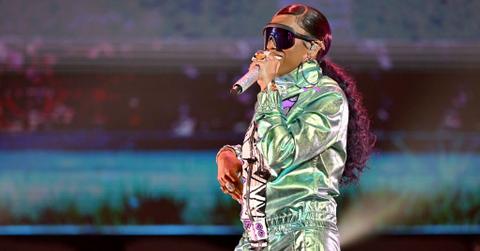
Hip-Hop's Influence on Modern Fashion Trends
By Kennedy JumaFeb. 15 2024, Published 9:36 p.m. ET
In the concrete jungles of the Bronx in the 1970s, a cultural revolution was born. Hip-hop, a movement rooted in the expressive power of music, dance, and art, not only shaped the landscape of the music industry but also became a powerful force in the fashion world. According to a 2023 review by A Magazine, "With the evolution of hip-hop music and fashion, the genre continues to be profound in pop culture. In the last few decades, hip-hop has had the greatest impact on street culture, influencing the fashion trends and clothing brands we appreciate today."
This article delves into the profound influence of hip-hop culture on contemporary fashion, exploring the evolution of styles, brands, and attitudes that have transcended the streets to redefine the mainstream.
1. Street Style Revolution
At its core, hip-hop emerged from the streets, and its influence on fashion reflects this gritty, urban authenticity. Street style, characterized by oversized clothing, bold colors, and athletic wear, became a hallmark of hip-hop fashion.
The iconic tracksuits, baggy jeans, and sneakers worn by early hip-hop pioneers like Run-DMC and LL Cool J laid the foundation for a style that embraced comfort and self-expression.
2. Branding and Logomania
Hip-hop's rise coincided with a new form of conspicuous consumption. Rappers, often coming from marginalized communities, used fashion as a symbol of success and empowerment.
From Run-DMC's iconic Adidas tracksuits to Biggie Smalls' Versace shirts, hip-hop artists elevated certain brands into cultural phenomena that remain influential in contemporary fashion.
3. Customization and DIY Culture
One of the most significant contributions of hip-hop to fashion is the emphasis on individuality and self-expression. In the early days of hip-hop, artists often customized their clothing to create unique looks.
DIY ethos manifested in graffiti-inspired designs, hand-painted jackets, and customized sneakers. Today, customization continues to thrive in streetwear, with brands embracing unique collaborations.
4. The Rise of Sneaker Culture
Sneakers, once primarily athletic footwear, transformed the hands (and on the feet) of hip-hop artists. The elevation of sneakers as a fashion statement began with hip hopers' endorsement of Adidas, leading to a slew of partnerships that birthed the "Superstar" model.
This alliance marked the beginning of sneaker culture, where collaborations between hip-hop artists and sneaker brands became highly coveted. Sneaker culture has since become a global phenomenon, with releases causing widespread anticipation and hype.
5. Influence on High Fashion
Hip-hop's influence transcended the boundaries of streetwear, permeating high fashion and luxury brands. Designers like Karl Lagerfeld, Marc Jacobs, and Tom Ford incorporated elements of hip-hop fashion into their collections.
The fusion of street style with high-end fashion not only challenged traditional norms but also democratized style, making luxury accessible to a broader audience.
6. Gender Fluidity and Fashion
Hip-hop has played a pivotal role in breaking down gender norms within the fashion industry. Artists like Missy Elliott and Aaliyah challenged conventional expectations of femininity by embracing baggy clothing and tomboy aesthetics.
The gender-fluid approach to fashion, championed by hip-hop artists, has had a lasting impact on the industry, fostering inclusivity and a more expansive understanding of style.
7. Cultural and Political Statements
Beyond aesthetics, hip-hop fashion has often been a platform for cultural and political expression. From Public Enemy's embrace of African-inspired attire to the Black Lives Matter movement influencing fashion statements, hip-hop's impact on fashion goes beyond trends.
Artists use their clothing as a canvas to address social issues, celebrate cultural heritage, and challenge the status quo.
Hip-Hop and Modern Fashion
The journey of hip-hop fashion, tracing its roots from the Bronx to a global phenomenon, stands as a testament to its lasting influence and cultural importance. Beyond a fleeting trend, hip-hop has become a transformative force, reshaping the entire landscape of the fashion industry. Its impact resonates from the streets to the catwalk and everything in between! This evolution shows clearly that hip-hop is more than a mere clothing style. It has become a powerful and enduring narrative, illustrating that fashion is a dynamic and far-reaching expression of cultural identity.
From the high fashion staples on the runway to oversized tracksuits on DJs, to high-end collaborations, hip-hop has left an indelible mark, proving that fashion is more than just clothing. Whether you actively listen to or enjoy hip-hop music, chances are you cannot escape its influence with your fashion choices!

